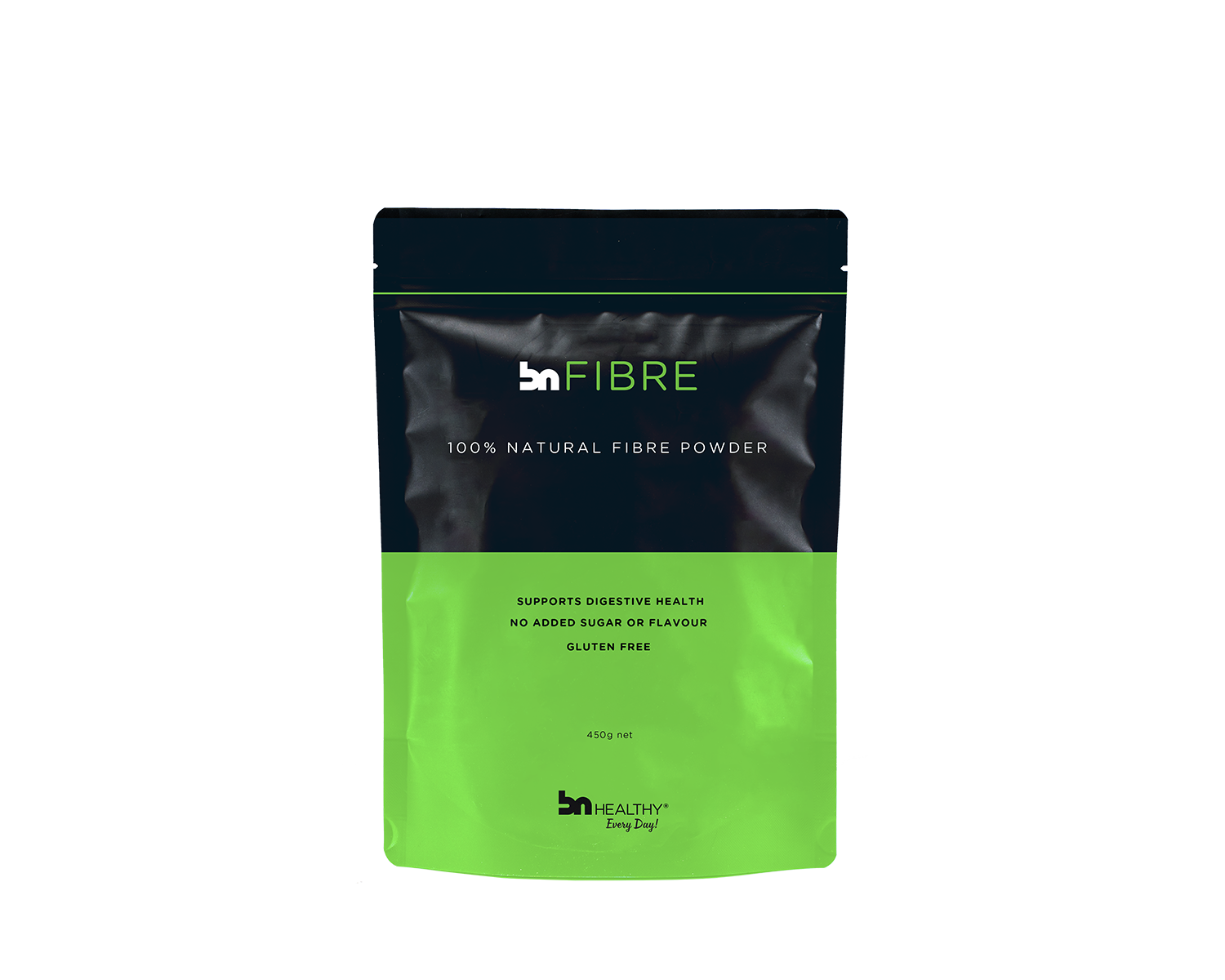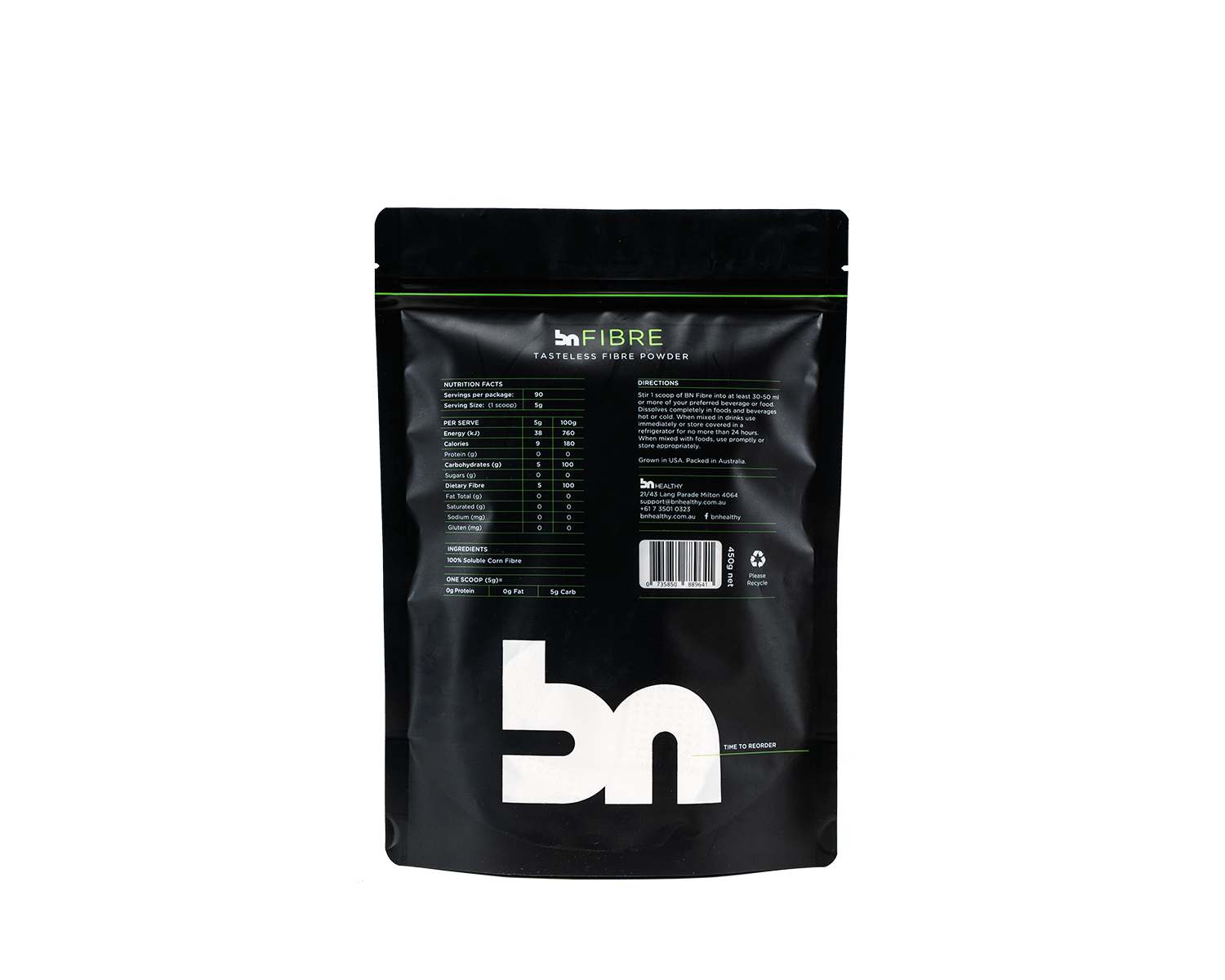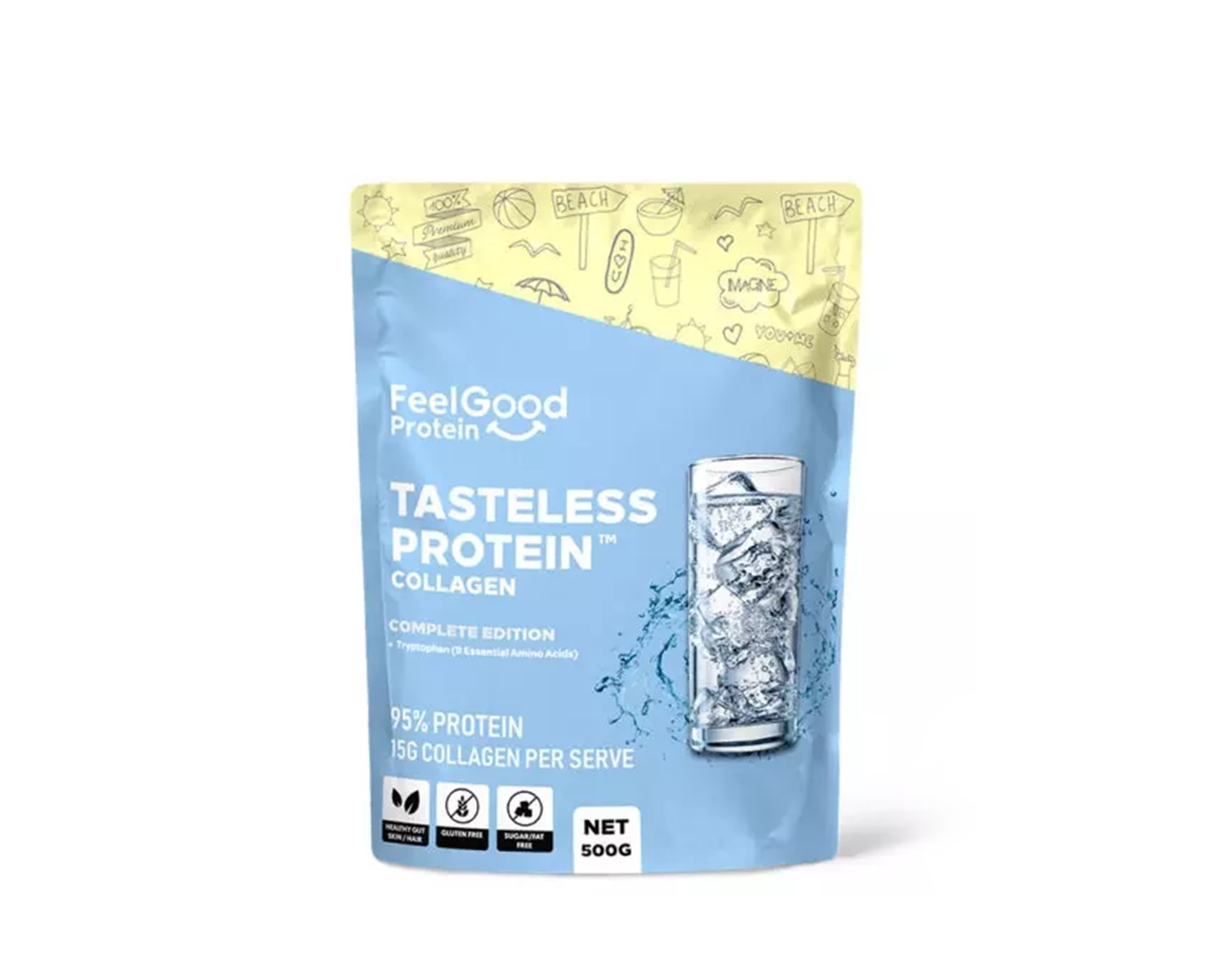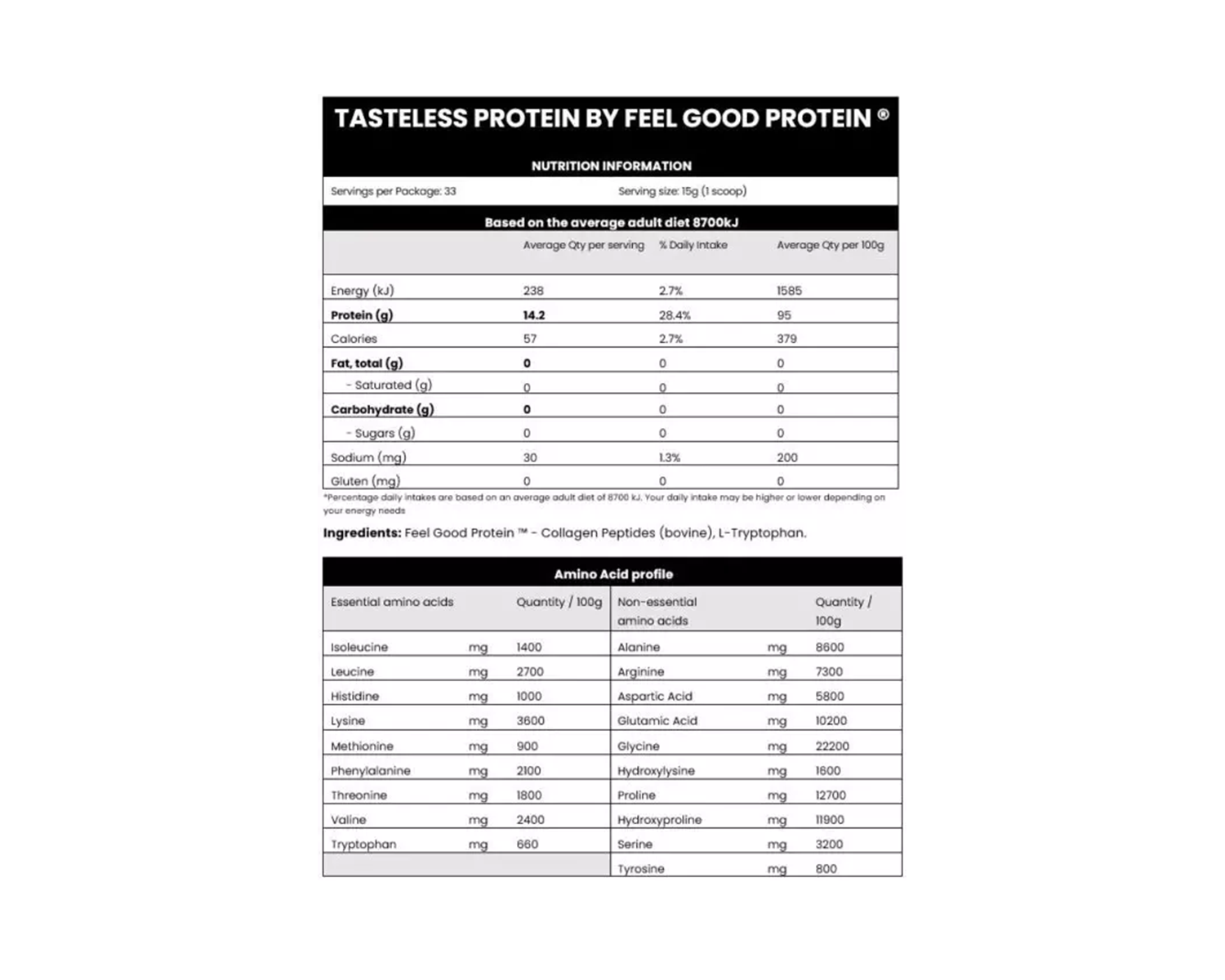March 2023
How Can Fibre Help Reduce Bloating and Stomach Pain?

Bloating and stomach pain are common gastrointestinal symptoms that can be extremely uncomfortable and particularly prevalent after Weight Loss Surgery. So what helps with bloating and stomach pain Post-Bariatric Surgery? It might be time to ask yourself if you're getting your daily dose of fibre.
Dietary fibre is one of the most important components of a healthy diet, as it helps regulate digestion, prevent constipation and reduce inflammation. You know, all the fun stuff. In this article, we will discuss fibre benefits and the function of fibre, and how you can get more into your diet, even with your smaller stomach.
What Is Dietary Fibre?
Fibre is a kind of carbohydrate that the body cannot process. While most carbohydrates are turned into glucose molecules, fibre cannot be broken down and passes through the body undigested.
Think of it like a large broom, moving through the digestive system and sweeping out excess toxins and hormones, all while keeping things regular. Dietary fibre foods help to balance hunger and blood sugar levels by regulating the body's glucose consumption.
Dietary fibre, also known as roughage or bulk, comes from the indigestible parts of plant-based foods such as
- Fruits
- Vegetables
- Legumes
- Nuts
- Whole grains

There are two main types of fibre:
Soluble and Insoluble
Soluble fibre absorbs water to form a gel-like substance that helps slow digestion and keeps us feeling fuller for longer.
Insoluble fibre does not dissolve in water but instead passes through your digestive system relatively unchanged.
It helps add bulk to stool which aids in regular, healthy bowel movements.
Both types of dietary fibre play an important role in keeping our digestive systems healthy. It is not a case of fibre vs fibre and which one might be more superior.
Soluble Fibre:
- Fruits and vegetables
- Legumes
- Oats
- Seeds - chia seeds, flax seeds
Insoluble Fibre:
- Bran
- Skins of fruits and vegetables
- Whole grain foods
What Are the Benefits of Fibre?

So why do we need fibre? Consuming enough dietary fibre has numerous benefits for physical health, including helping to reduce bloating and stomach pain. High-fibre foods for gut health help to maintain a healthy population of beneficial bacteria, which inhibits inflammation throughout the body.
Furthermore, regulating digestion and preventing constipation reduces the load on the digestive system – this strain can otherwise worsen symptoms associated with Irritable Bowel Syndrome (IBS).
Eating high-fibre diets also helps reduce one's risk of developing heart disease and diabetes by improving cholesterol levels. It can grab hold of cholesterol in the digestive system and carry it out for excretion rather than recirculating it.
Nifty, huh?
Main Role of Digestive System and Function of Fibre
The main function of our digestive system is to break down food into small molecules to be absorbed and utilised by the body. Waste products, like undigested food material such as indigestible fibre, are eliminated via the faeces.
Fibre is vital to facilitate the passage of nutrients through the digestive system for the body to utilise while helping to reduce gas, bloating, and abdominal pain.
What Does Fibre Do for Your Body?
- Reduces inflammation: A diet high in fibre can reduce inflammation throughout the body by balancing gut bacteria levels. This is because fibre helps to nourish the good kind of gut bacteria.
- Lowers cholesterol levels: Fibre is a natural body cleanser. A soluble high-fibre diet, in particular, has been associated with cholesterol control by reducing Low-Density Lipoprotein (LDL), the bad kind of cholesterol.
- Prevents constipation: Constipation is a common cause of bloating and abdominal pain. Eating a high-fibre diet can help prevent constipation by adding bulk to stools, making them easier to pass.

- Maintains blood sugar levels: While particularly important for diabetics, maintaining blood sugar levels also helps reduce cravings for high-sugar foods, which is important to help you maintain your weight loss post-surgery. Oh, and it helps to prevent hangers, which we all know is the absolute worst.
- Improves weight loss goals: While fibre alone will not result in rapid weight loss, the source can help. Hitting your daily fibre intake can prolong feelings of fullness, resulting in less snacking or giving in to cravings.
- It helps eliminate excess oestrogen, a consideration in the rapid weight loss stage after Bariatric Surgery. Oestrogen is stored in fat cells, and when it's in excess, it creates all sorts of metabolic problems.
- Eliminates excess hormones and toxins from the body: Fibre is the intestinal broom that stops excess hormones and toxins from recirculating to the liver - it's an essential part of the elimination process.
What Are Good Sources of Fibre?
Some good sources of fibre and foods that help with bloating include:
- Fruits such as figs, apples, pears, oranges, blueberries, and raspberries
- Vegetables such as broccoli, brussels sprouts, artichokes, and sweet potatoes
- Whole wheat breads and pastas
- Brown rice
- Oats, quinoa, barley, rye
- Nuts and seeds such as almonds, walnuts, chia, sunflower seeds, and flaxseeds
- Legumes such as lentils, black beans, chickpeas, and kidney beans
- Supplements include ground flaxseed, psyllium husk, or a formulated fibre supplement.

Some Ideas to Increase Your Fibre Intake
Simple ways to increase your daily fibre consumption include:
- Add barley, wheat, or oats to your breakfast meals.
- Use wholemeal or multigrain bread and brown rice instead.
- Include an additional veggie in your meals.
- Snack on fresh or dried fruit, nuts, or wholegrain crackers.
- Include a fibre supplement.

What Happens When Fibre Intake Is Too Low?
Many, if not most, adults need to consume more fibre, and it is recommended that an average person needs to consume 25-40 grams of fibre daily. For context, one avocado contains about 10g of fibre.
If you do not consume enough fibre in your diet, it can lead to:
- Constipation
- Bloating
- Blood sugar spikes
- Cravings and hunger (the dreaded hanger!)
- Weight gain
- High cholesterol or blood pressure
As you increase your fibre consumption, you should also increase your hydration levels; otherwise, to put it bluntly, things might get a little stuck. Increasing fibre and water helps move food through the digestive tract more effectively and prevents gas from building up in the intestines, which causes bloating.

Remember that increasing fibre too quickly all at once may lead to further bloating due to increased gas production, so it's best done gradually over time.
How to Relieve Stomach Pain and Bloating?
If you have increased your fibre too quickly - try these tips to alleviate the discomfort. The bloating and discomfort can be a good sign that unhealthy bacteria are "dying off," and new and more healthy strains will start to set up camp. This is a process that, whilst uncomfortable, you will reap the rewards if you persist!
Try:
- Drinking adequate fluid to help move stool through the intestines can help reduce constipation and abdominal pain associated with too much fibre.
- Incorporating foods that prevent gas and bloating, such as probiotics, into your diet. This may also help ease symptoms of digestive discomfort caused by too much fibre. Probiotics contain healthy bacteria, which help break down dietary fibre and assist in digestion.
- Exercise regularly promotes circulation throughout the body and keeps the gastrointestinal tract moving properly.
Why Is Fibre Important After Weight Loss Surgery?
Post-Weight Loss Surgery, getting adequate dietary fibre can be challenging due to minimised carbohydrate sources such as wholegrain foods and limited portion sizes of fruits and vegetables.
Taking a fibre supplement makes it considerably easier to maintain the necessary levels and keep that fibre broom sweeping and delivering those important nutrients where they need to go. It promotes regularity and offers numerous other health benefits like extended satiety throughout the day or reduced cholesterol when consumed appropriately.
Regardless if bowel motions are regular, we strongly advise all Weight Loss Surgery patients to take a daily dose of fibre supplements following their surgery. As well as consume foods such as probiotics to reduce bloating and improve overall gut health, which is a vital component of ongoing vitality, immunity and mental health.
Looking for Fibre Supplements?
BN Fibre is a flavourless, undetectable fibre solution that is great for anyone, especially Weight Loss Surgery patients. BN Fibre contains soluble corn fibre to help support and maintain "regularity."
Our fibre isn't thick and clumpy and is undetectable in food and drink, which makes it incredibly easy to pep up your dietary fibre intake! The fibre supplement also doesn't take up valuable space in your new little belly, making it unique from many other fibre supplements not designed with bariatric surgery patients in mind.
Being flavourless, BN Fibre may be incorporated into meals, beverages, and smoothies. BN Fibre blends smoothly with baked goods and many other meals, too, so you can get creative in the kitchen. Get yours today!










